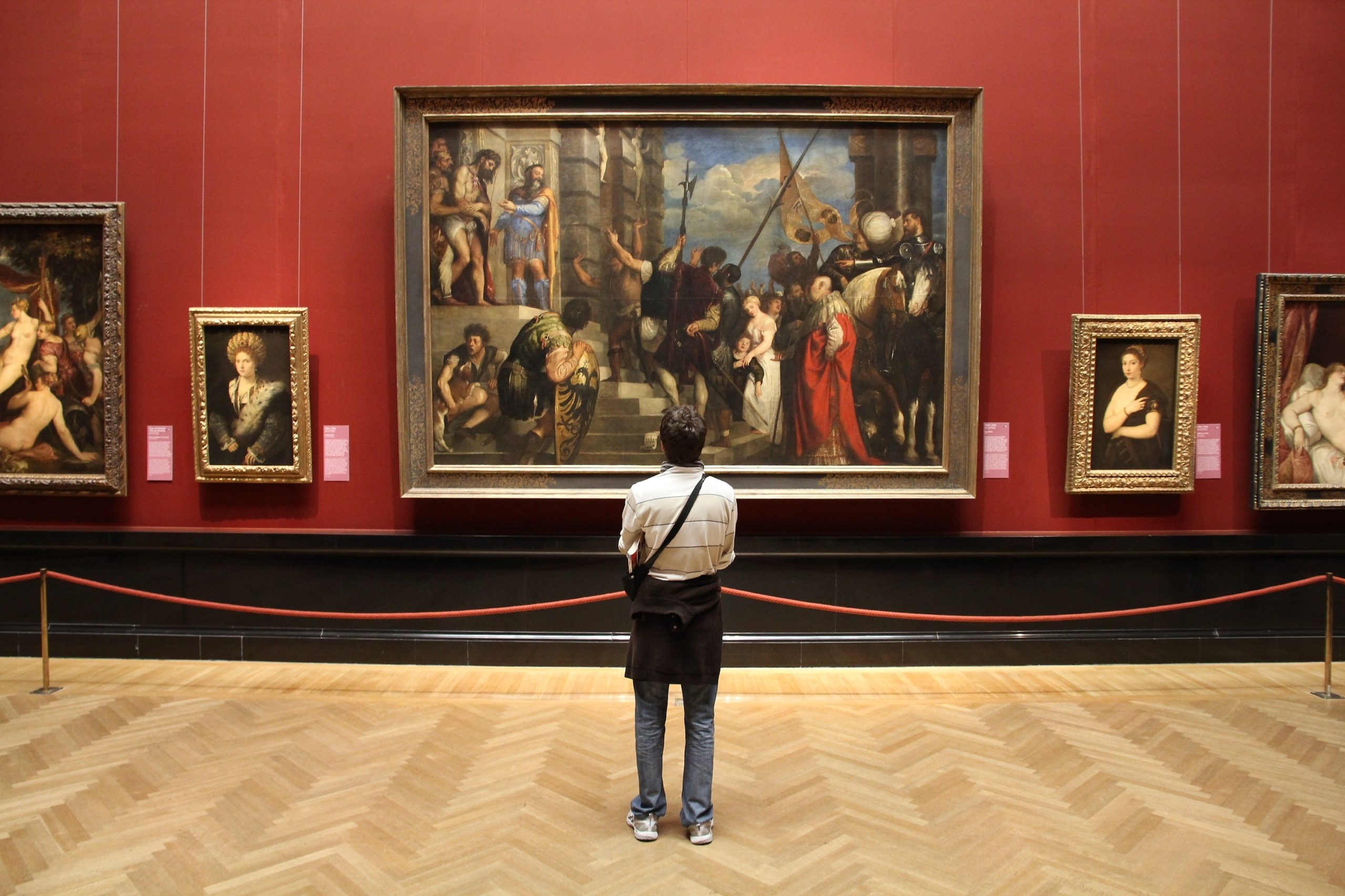Arts & Humanities

Best Online Human Development Degrees
Earning one of the best online bachelor’s in human development can help you enrich the lives of others and push for societal change. Many […]

Most Affordable Online Biblical Studies Degree Programs
Are you called to the clergy? It’s beneficial for ministers to obtain a Bachelor’s in biblical studies. An online degree in biblical studies familiarizes […]

Best Online Interior Design Degrees
Graduating with one of the five best online bachelor’s degrees in interior design allows you to get your foot in the door in one […]

Best Online Humanities Degrees
If you love the liberal arts but aren’t sure which field to dive into, consider getting a bachelor’s in humanities degree. This degree allows […]

What Is Document Delivery in Library Science?
When writing a science research paper in college, Kate utilized her university library to access supporting evidence and additional research to cite in her […]

Best Online Liberal Arts and Sciences Degrees
The 35 Best Online Bachelor’s in Liberal Arts and Sciences will help you to see the world anew. The world comprises so many constructs, […]

Best Online Master’s in Political Science
Change the world and earn a robust salary in the process with an online master’s in political Science! You may think that a political […]

Best Online Master’s in Music
With one of these best online master’s in music, you’ll be able to make your passion into your career while mastering your art. It’s […]

Most Affordable Animation Schools
Merge storytelling, technology, and artistry with an affordable and flexible online bachelor’s degree in Animation. You’re looking for a way to break into the […]

Ultimate Guide to Library Science
From the scrolls of Ancient Egypt to the books first printed on the Gutenberg press, and now in the ones and zeros of digital […]

Best Online Master’s Degrees in Theology
“In the beginning . . .” Study one of the oldest stories known to humankind — the Bible! Start with one of the best […]

Ultimate Guide to Art History
Art history is about more than just the study of art. Art historians put great cultural works in the context of their time and […]

Best Online Divinity/Ministry Degrees
Learn to teach, lead, and inspire the masses by earning an online Bachelor’s in Ministry. Become a leader at your church by obtaining an […]

Best Online Creative Writing Degrees
The world runs on storytelling. If you’re interested in narrative craft, the best online bachelor’s in creative writing will develop your talents. Creative writing […]

Ultimate Guide to Biblical Studies
From philosophy to literature, and from history to politics, the influence of the Bible on the western world is impossible to quantify. Some study […]

Most Affordable Online English Degrees
Learning the technical craft of writing is easy with one of the 15 most affordable online Bachelor’s of English and can have you writing […]

Best Online Social Sciences Degrees
With one of the best online bachelor’s in social sciences, you will gain an interdisciplinary understanding of societal structures. Choosing a bachelor’s in social […]

Best Online Master’s in Social Sciences
Learn to understand humans in a wide variety of contexts with one of the 5 Best Online Master’s in Social Sciences Social science degrees […]

Best Online Master’s in English
Reading and writing are critical skills in any professional field, so earning one of the best online master’s in English is an excellent choice. […]

Best Online Master’s Degrees in Sociology
People who understand the social fabric of our world are often the most successful in life. Join the ranks of the best and brightest […]

Why Study Art History?
Since there may not be many job listings for an art historian, those interested in the topic may be left wondering, why study art […]

Best Online English Degrees
The study of English is no longer a field only for teachers and scholars. Students with a Bachelor of Arts or Bachelor of Science […]

How to Study Art History
Even if you’re not an art history major, courses in art history are a common requirement in college, providing a crucial part of a […]

Most Affordable Online Communications Degrees
Learning how to effectively communicate through obtaining a bachelor’s in communication opens doors for many lucrative and stable careers. You may think that you […]

What Is Library Science?
Mention the phrase “library and information science” and the majority of individuals in the United States will conjure a mental picture of a place […]

Most Affordable Online Liberal Arts and Sciences Degrees
Pay less and make more with one of the 25 Most Affordable Online Bachelor’s in Liberal Arts and Sciences. Education is essential—we can all […]

Best Online Biblical Studies Degrees
Do you have an interest in studying the Bible and building a career in ministry? Earn the best online bachelor’s in bible studies! If […]

Best Online Masters in Interior Design Online
Are you an aesthetically-minded person? Do you want to design and decorate interior spaces? If so, consider getting a masters in interior design online. […]

Best Online Master’s in Art Therapy
Expand your artistic prowess into the world of therapy by earning an online masters degree in art therapy. Do you love helping others? Have you […]

Best Online General Studies Degrees
It’s important to earn a degree to remain relevant in the job marketplace. But not everyone has a particularly intense interest or a special […]

Best Online Master’s in Human Development
If you have a passion for bettering the lives of others, the best online master’s in human development degrees might be a great choice. […]

10 Best Online Master’s in Art and Art History Programs
Whether you want to teach art, analyze artwork, or work in a gallery or museum exhibit, you should consider a master’s degree in art […]

Most Affordable Online Social Sciences Degrees
Gain a firm understanding on social and cultural influences by earning one of the 25 Most Affordable Online Bachelor’s in Social Sciences. If you […]

Best Online Graphic Design Degrees
Your art skills can land you in a profitable career. An online graphic design degree will get you there. The possibilities are endless with […]

Best Online Journalism Degrees
Be the first to learn new and exciting information and influence public opinion with the 10 best online degrees in journalism! Covering breaking stories […]

Best Online Master’s in Translation
If you are bilingual and excel in converting one language into another, an online master’s in translation can elevate your career. If you’re fluent […]

Best Online Music Degrees
Pursue your passion and master your craft with one of the 5 Best Online Bachelor’s in Music! Music is a universal language that can […]

Most Affordable Online Humanities Degrees
The best humanities degrees are flexible choices that will provide you with a plethora of employment options. Getting a bachelor’s degree isn’t easy, both […]

Best Online Master’s in Biblical Studies
Become a minister or learn to more effectively teach the Bible with the 10 best online master’s in Biblical studies programs. Many students who […]

Best Online Master’s in Library Science
Everyone knows how to Google a question, but few people know exactly how to find a reliable resource for their next research project. Librarians, […]

Best Online History Degrees
In order to prepare for the future, it’s essential to study the past. Here are the 35 best online bachelor’s in history. If you […]

Art History Degree On Line: 10 Best Degrees 2022
Art History Degree Online Art is all around us. It includes the design of a book cover. In includes classic paintings in museums, too. […]

Best Online Master’s in Journalism
The sharpest journalists and most inquisitive reporters all have a master’s in journalism degree. These days, aspiring journalists and future masters of the written […]

Best Online Master’s in Divinity
Do you feel called to become a leader in Christian ministries? Discover the 35 best online master’s in divinity to kickstart your career. Whether […]

Best Online Master’s in Liberal Arts and Sciences
The 15 Best Online Master’s in Liberal Arts and Sciences will give you a broader understanding of the world. Most university students examine one […]

Best Online Communications Degrees
Aspiring speakers, writers, and businesspeople looking for a versatile degree can benefit from one of these 35 best online Bachelor’s in Communications! Bachelor’s in […]

Best Online Certificate in Translation
If you have skills in more than one language and want to apply that to a career, then check out these online certificates in […]

What Is Art History?
Viewing the whole of human history through its creative output, art history is a fascinating field of study that prepares graduates for any number […]

Best Online Animation Degrees
Are you a creative artist looking to bring your work to life in 2D and 3D? Check out our Best Online Bachelor’s in Animation […]

Best Online Master’s in Communications
Learn how to appropriately convey different concepts and business practices with one of the 30 best online master’s in communications degrees! Pursuing your master’s […]
